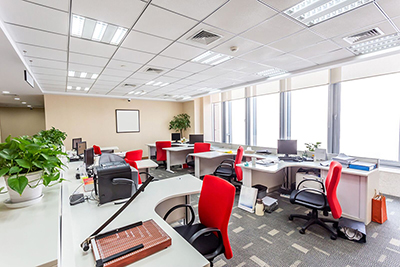
‘Murky’ Office Sector Outlook

CommercialEdge, Santa Barbara, Calif., called the office sector’s future “murky,” even now, well over two years since the COVID-19 pandemic started.
“While vaccines and treatments have moved the disease from pandemic to endemic, many workers and firms have become accustomed to remote and hybrid work setups,” CommercialEdge said in latest National Office Report.
A recent Pew Research survey found 60 percent of office workers with jobs that can be done from home would prefer to work from home most or all the time if given a choice. Office security company Kastle Systems said office occupancy rates have “plateaued” at 43 percent for nearly two months, suggesting that level may be the new normal.
“The ongoing nature of the disease as well as employee pushback against some corporate announcements has led to a year of stop-and-start return-to-office plans,” CommercialEdge said. “Tech giants like Google, Amazon and Apple have announced and altered return-to-office policies multiple times over the past year but seem set to adopt permanent hybrid work strategies.”
The report noted many companies prefer not to force workers to come back to the office. “Starbucks CEO Howard Schultz has publicly pleaded with his office workers to return to the office, but he has stopped short of mandating them to do so,” CommercialEdge said.
Inflation poses another challenge to getting workers back into the office. The Bureau of Labor Statistics reported Wednesday the U.S. Consumer Price Index rose by 9.1 percent year over year, the largest annual increase since 1981. “Not only will getting to the office be more expensive than ever for workers, but so will ancillary expenses such as coffee and lunch,” CommercialEdge said. “Employees that are required to return to the office will need to feel like the time and money spent on a trip is worthwhile.”
Inflation also affects the office transaction market, the report said. “In the near term, deal flow may increase as investors look to lock in today’s interest rates due to strong indications that the Federal Reserve will raise rates multiple times in the next year,” CommercialEdge said. “However, inflation and anticipated rate hikes represent another headwind in a market full of uncertainty, which could depress investor enthusiasm.”
